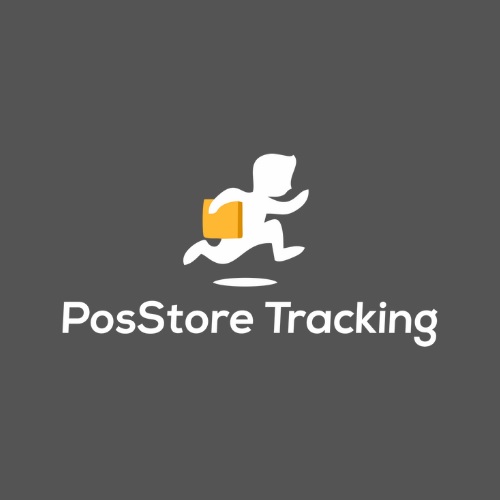In today’s fast-paced retail environment, businesses need tools that not only help them manage sales and inventory but also streamline their overall operations. One such tool is POSStore tracking, which revolutionizes how businesses monitor and manage transactions, inventory, and customer data. Whether you run a small retail shop or a large enterprise, POSStore tracking can help optimize your business performance. This guide will walk you through the essentials of POSStore tracking and how it can contribute to business efficiency and success.
Table of Contents
What is POSStore Tracking: POSStore Tracking
POSStore tracking refers to a Point of Sale (POS) system integrated with advanced tracking capabilities. In this context, tracking involves monitoring various components of the business, such as sales, inventory levels, employee performance, and customer interactions. With POSStore tracking, businesses can gain real-time insights into their operations, ensuring that they are running smoothly and efficiently.
How Does POSStore Tracking Work?
At its core, a POS system is used to process sales transactions. POSStore tracking takes this further by adding functionalities that allow businesses to:
- Track sales in real time: With every transaction processed through the POS system, business owners can instantly view sales data, identify trends, and respond to changes in demand.
- Monitor inventory levels: POSStore tracking ensures that inventory is updated automatically as sales occur, reducing the risk of stockouts or overstocking.
- Track employee performance: By linking employee actions to the POS system, businesses can assess staff productivity, identify top performers, and manage staffing levels effectively.
- Track customer preferences and behaviors: POS systems with tracking capabilities can record customer data, such as purchase history and preferences, helping businesses tailor their offerings and marketing strategies.
Why is POSStore Tracking Important?
POSStore tracking plays a critical role in modern business management. It offers a variety of benefits that contribute to operational efficiency, customer satisfaction, and overall profitability.
Benefits of POSStore Tracking
1. Real-Time Data Access
POSStore tracking systems provide business owners with real-time access to essential data. This means that you can check sales figures, monitor inventory levels, and review employee activities without having to wait for end-of-day reports. Real-time data allows businesses to make quick and informed decisions, which is particularly crucial in fast-moving retail environments.
2. Improved Inventory Management
One of the key advantages of POSStore tracking is its ability to help manage inventory more efficiently. The system automatically updates stock levels as items are sold, giving you an accurate overview of what’s in stock and what needs to be reordered. Some systems also offer low-stock alerts, ensuring that businesses can replenish items before they run out.
3. Enhanced Customer Experience
POSStore tracking systems often include customer relationship management (CRM) tools that allow businesses to collect and analyze customer data. By understanding customer preferences and purchase history, businesses can offer personalized experiences, which can lead to higher customer satisfaction and loyalty.
4. Increased Employee Accountability
With POSStore tracking, businesses can monitor employee performance by tracking individual sales, customer interactions, and time spent on tasks. This level of transparency helps to foster accountability and ensures that staff are working efficiently. Additionally, it allows management to identify top performers and reward them accordingly.
5. Accurate Reporting
Manual data entry and reporting are prone to errors, which can lead to misinformed business decisions. POSStore tracking systems generate accurate reports automatically, reducing human error and providing business owners with reliable data to guide their strategies.
Key Features of POSStore Tracking Systems
Not all POS systems are created equal. When looking for a POSStore tracking system, it’s important to consider the features that will best suit your business needs. Here are some of the key features to look for:
1. Sales Tracking
A robust POSStore tracking system should offer comprehensive sales tracking capabilities. This includes real-time data on total sales, the number of transactions, average transaction value, and sales trends over time. By understanding these metrics, businesses can make data-driven decisions to improve sales performance.
2. Inventory Management
An advanced inventory management feature is essential for efficient business operations. This allows you to track stock levels, set low-stock alerts, and generate purchase orders automatically. Some systems even offer multi-location inventory management, which is ideal for businesses with more than one outlet.
3. Employee Management
Employee tracking features within a POSStore system help businesses monitor staff performance. Features such as clock-in/clock-out functionality, individual sales tracking, and performance reporting ensure that businesses can manage their workforce effectively.
4. Customer Relationship Management (CRM)
A POSStore tracking system with CRM capabilities allows businesses to capture and analyze customer data. This feature enables businesses to offer personalized experiences, segment customers for targeted marketing, and improve customer retention.
5. Reporting and Analytics
POSStore systems should come with advanced reporting tools that allow businesses to generate customizable reports on various metrics, including sales, inventory, and employee performance. These reports can provide valuable insights that help businesses optimize their operations and identify areas for improvement.
6. Integration with Other Systems
A POSStore tracking system that integrates with other business tools, such as accounting software, eCommerce platforms, and marketing systems, can streamline operations further. This ensures that all systems work together seamlessly, reducing manual tasks and improving efficiency.
Implementing POSStore Tracking in Your Business
If you’re considering implementing POSStore tracking in your business, it’s important to take the right steps to ensure a smooth transition. Here’s a step-by-step guide to help you implement a POSStore tracking system effectively:
Step 1: Assess Your Business Needs
Before selecting a POSStore tracking system, assess your specific business needs. Consider the size of your business, the number of locations you operate, your sales volume, and the level of data and reporting you require. This will help you choose a system that meets your unique needs.
Step 2: Research POSStore Tracking Providers
Once you’ve assessed your needs, research different POSStore tracking providers. Look for providers that offer the features you require, such as real-time sales tracking, inventory management, CRM tools, and employee tracking. Be sure to read reviews and compare pricing options.
Step 3: Set Up and Configure the System
After selecting a POSStore tracking provider, work with the provider to set up and configure the system to suit your business. This may involve customizing settings, integrating the system with other tools, and setting up user permissions for staff.
Step 4: Train Your Staff
It’s important to train your staff on how to use the POSStore tracking system effectively. Ensure that employees understand how to process transactions, manage inventory, and use any other features that are relevant to their roles.
Step 5: Monitor and Optimize
Once your POSStore tracking system is in place, monitor its performance regularly. Use the system’s reporting and analytics features to identify areas for improvement and optimize your business operations accordingly.
Common Challenges with POSStore Tracking
While POSStore tracking offers many benefits, businesses may encounter certain challenges when implementing and using these systems. Here are some common challenges and tips on how to overcome them:
1. Data Overload
With so much data available, it can be overwhelming for businesses to know what to focus on. To overcome this, it’s important to prioritize the metrics that are most relevant to your business goals. For example, if your goal is to improve sales performance, focus on sales trends and employee performance data.
2. System Integration
Integrating your POSStore tracking system with other business tools can be challenging, especially if you’re using legacy systems. Work with your POS provider to ensure that the system integrates smoothly with your other tools, and consider using middleware if necessary.
3. Staff Resistance
Some employees may resist using a new POSStore tracking system, particularly if they are used to manual processes. To address this, offer comprehensive training and highlight the benefits of the system, such as reduced manual tasks and improved efficiency.
Conclusion
POSStore tracking is a powerful tool that can help businesses streamline their operations, improve customer satisfaction, and boost profitability. By providing real-time insights into sales, inventory, and employee performance, POSStore tracking enables businesses to make data-driven decisions and stay competitive in today’s fast-paced retail environment. If you’re looking to enhance your business operations, implementing a POSStore tracking system is a step in the right direction.


